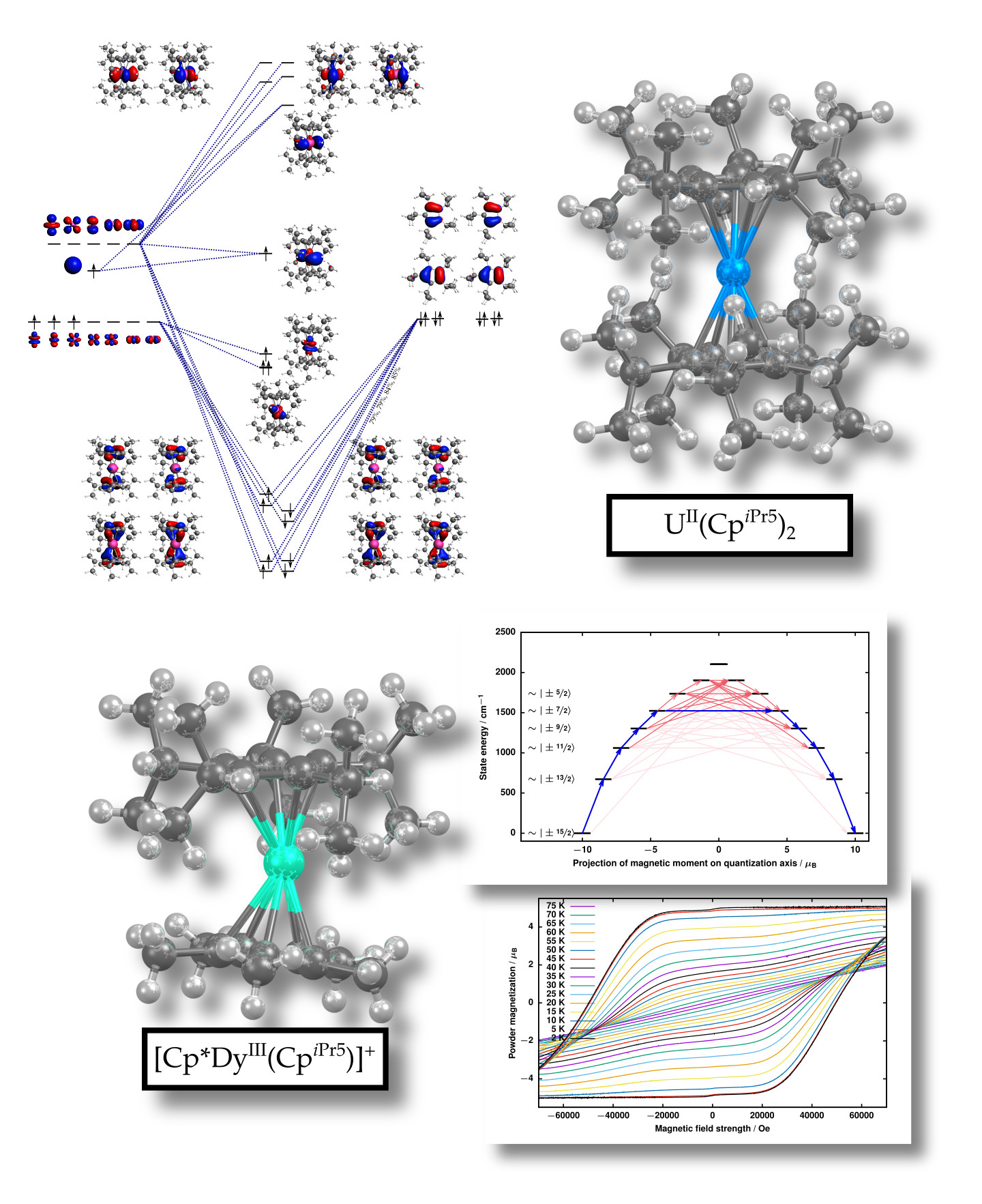


Single-molecule magnets are molecules that can be magnetized by an external magnetic field and that retain the magnetization even after the external field has been switched off. This makes it possible to code information into individual molecules and has possible applications in quantum information processing. For example, Grover’s quantum computing algorithm has been implemented into single-molecule magnets.
Our work focuses on theoretical and computational studies of single-molecule magnets constructed from organometallic coordination complexes of transition-metal, lanthanide, and actinide ions, or from endohedral metallofullerenes. The research utilizes high-level quantum chemical methods designed to treat strongly correlated heavy-element systems, and spin-dynamics simulations. The practical work consists of conducting quantum-chemical calculations, development of new simulation software and theoretical derivation of models. The work is closely related to experimental work conducted in the laboratories of various collaborators.
The research aims at understanding the relationship between the chemical structures and magnetic properties of the constitute molecules. In addition to obtaining important fundamental information on the electronic structures and physics of magnetization dynamics, the research aims at designing new molecular systems that can be utilized in practical technological applications in the long term.
